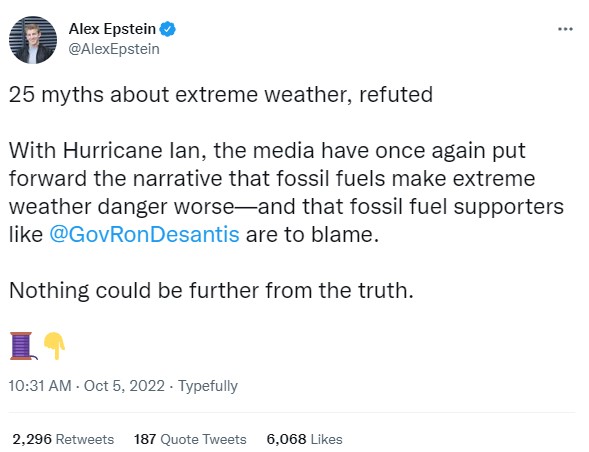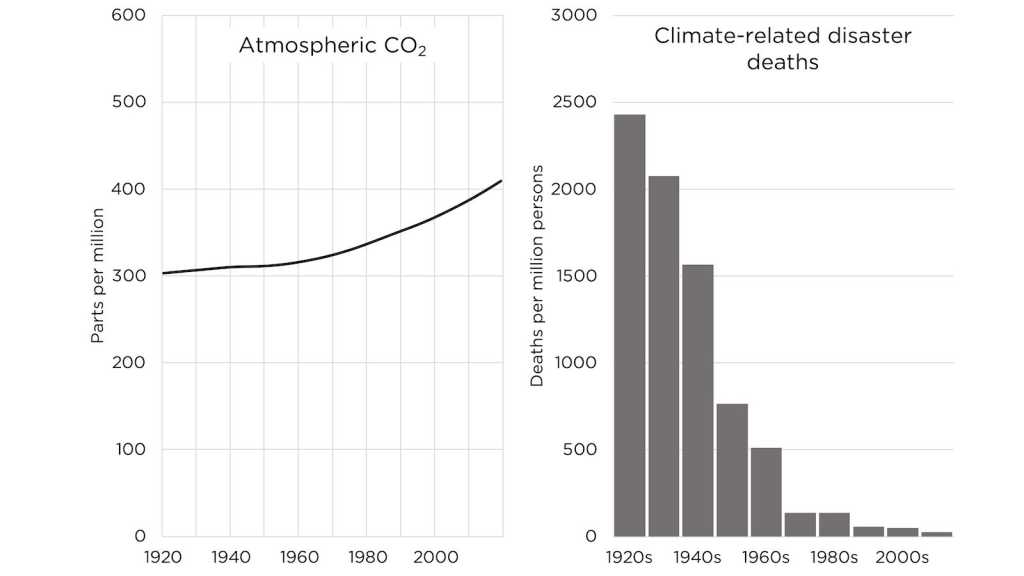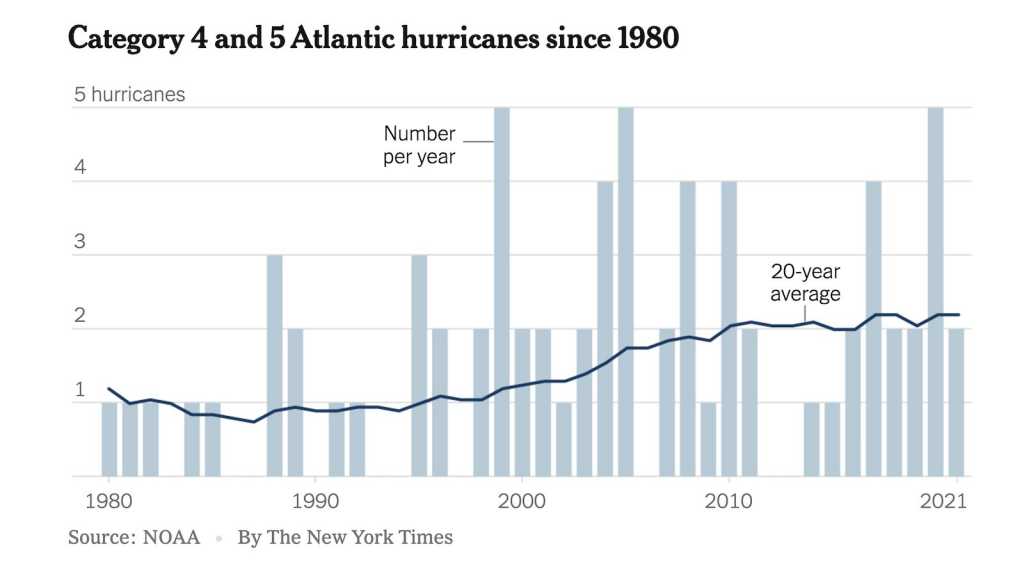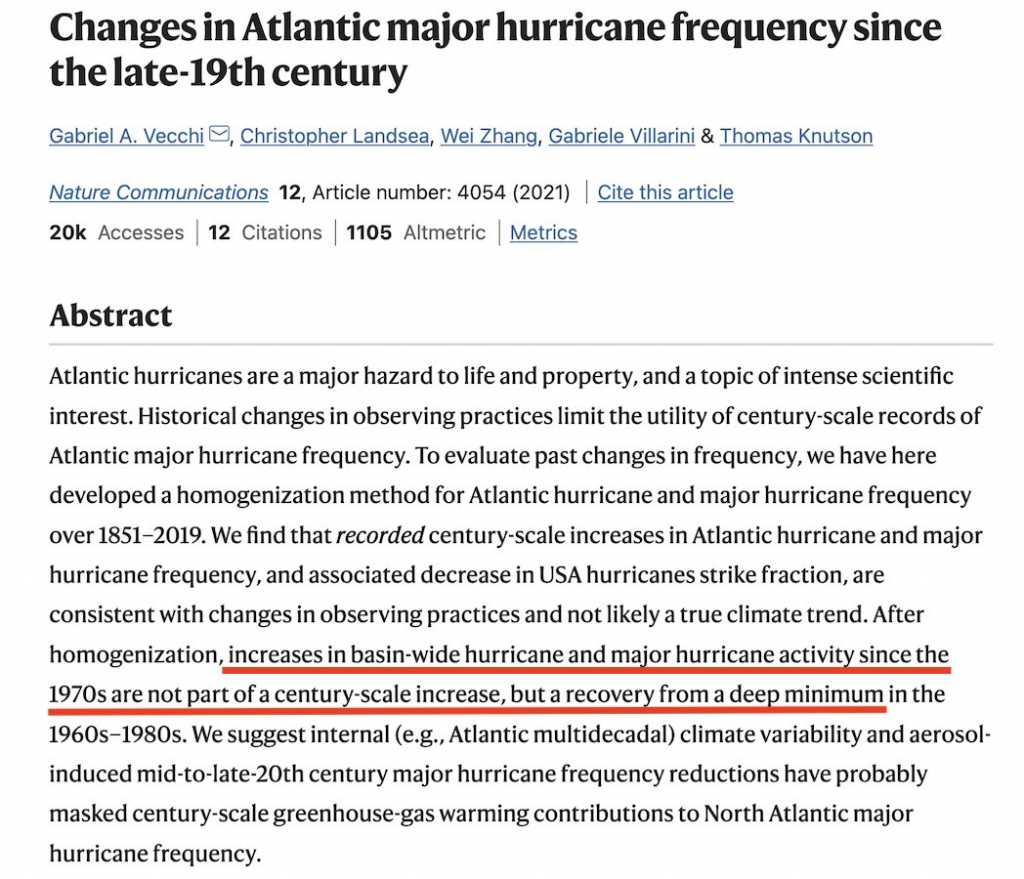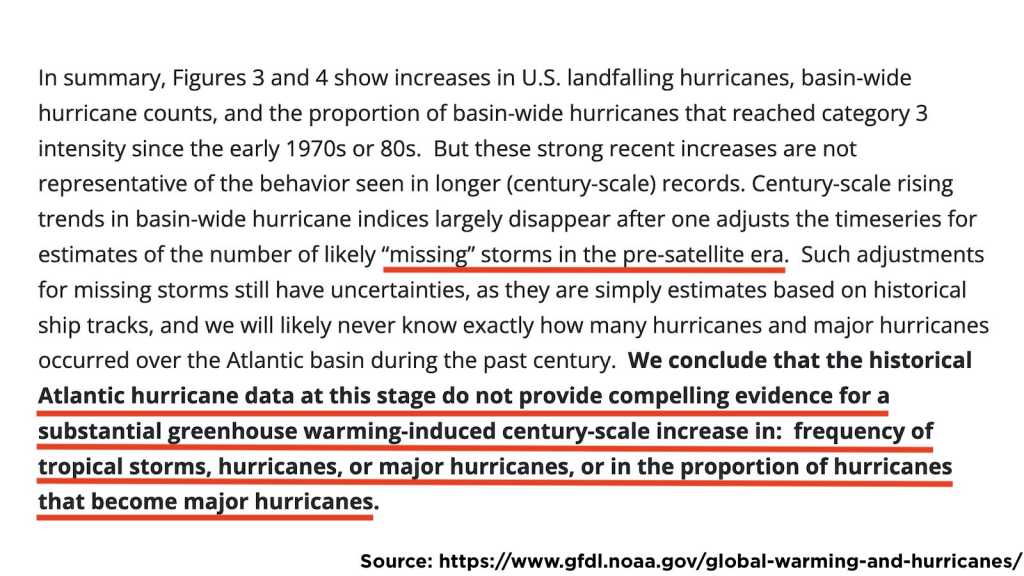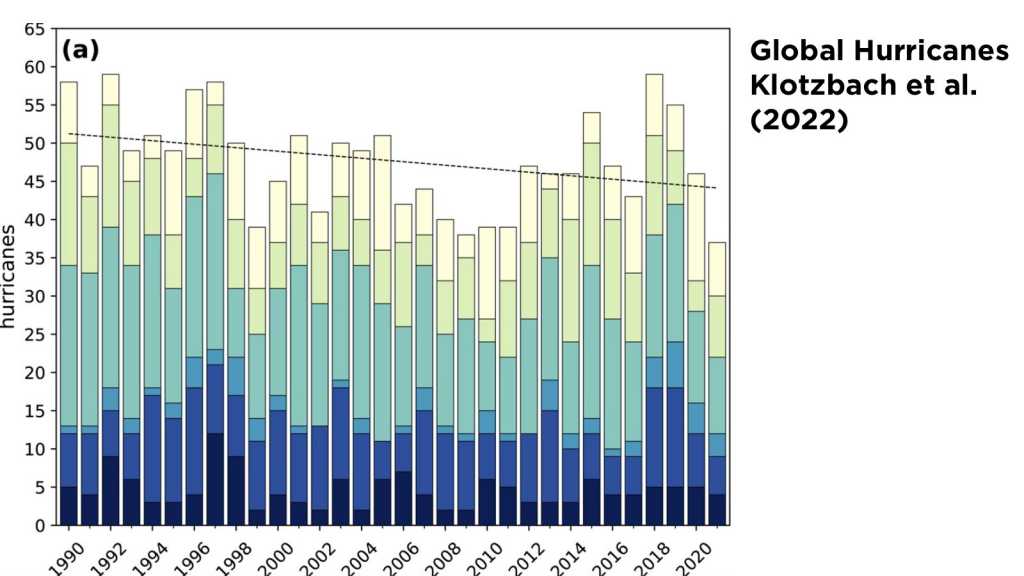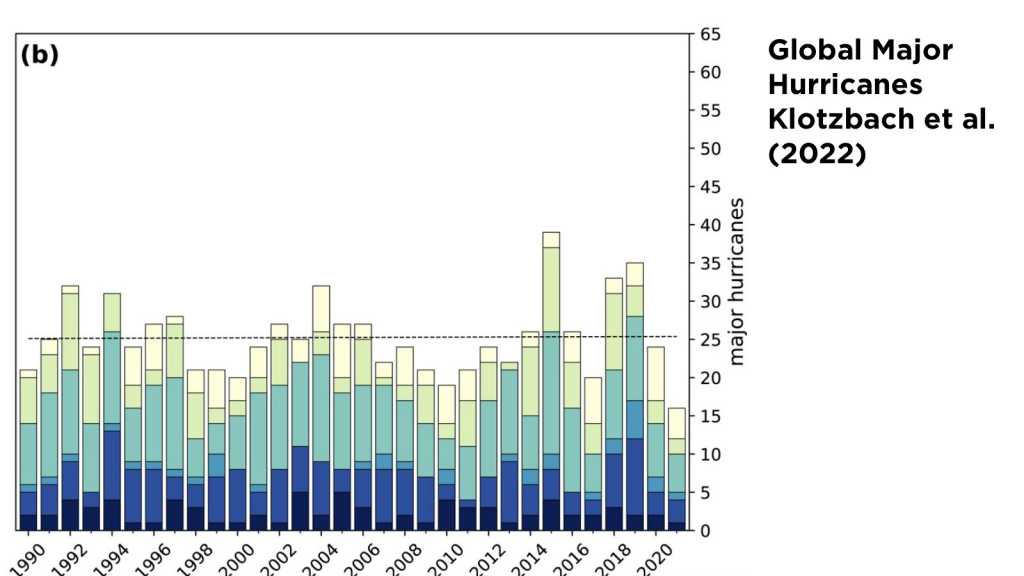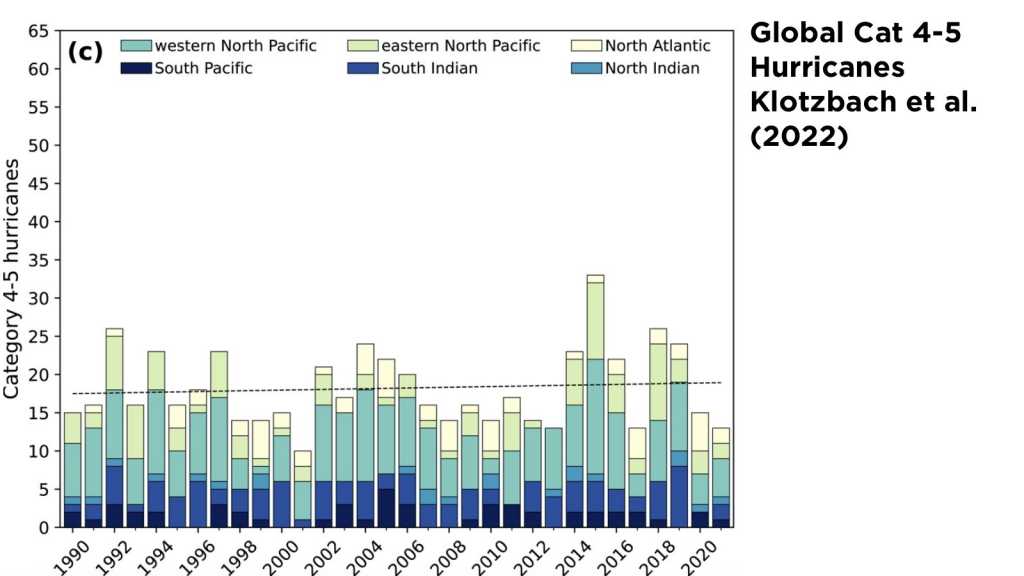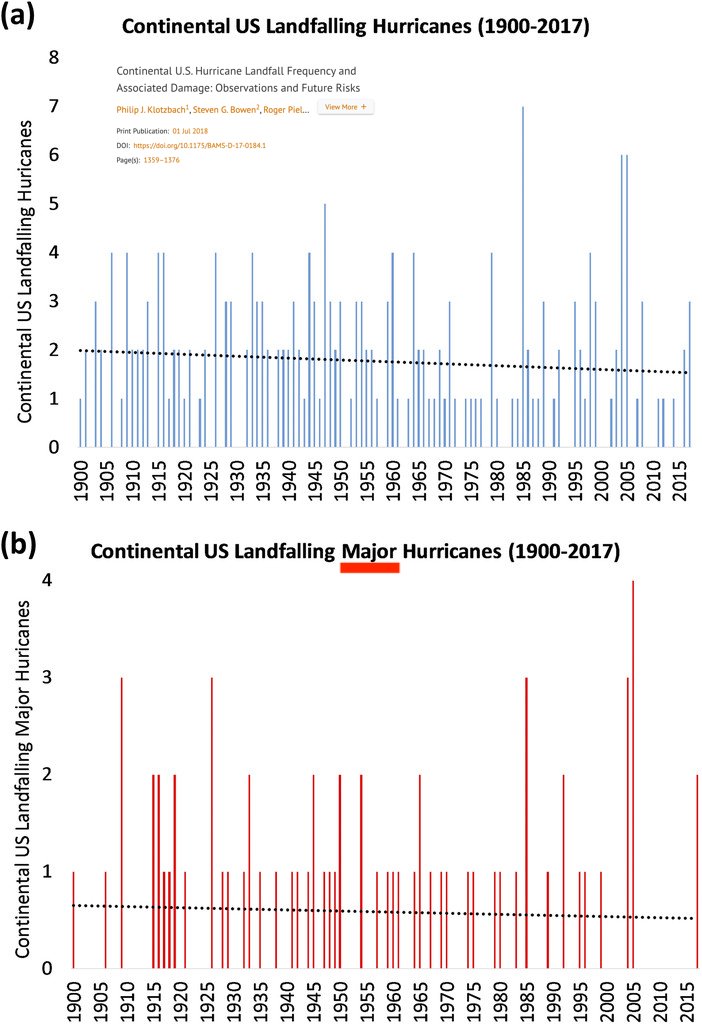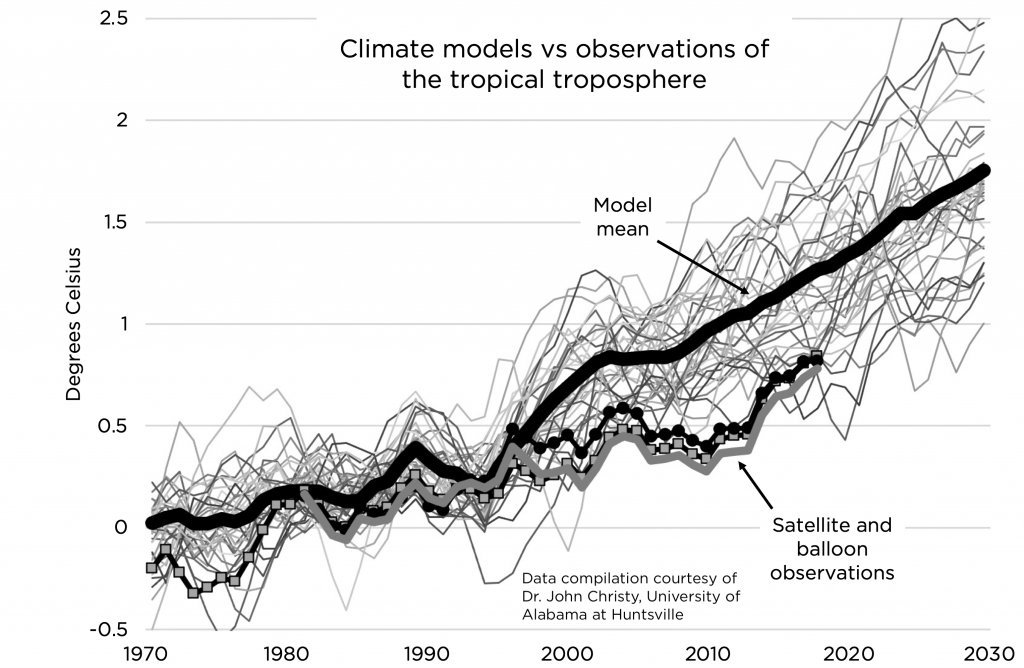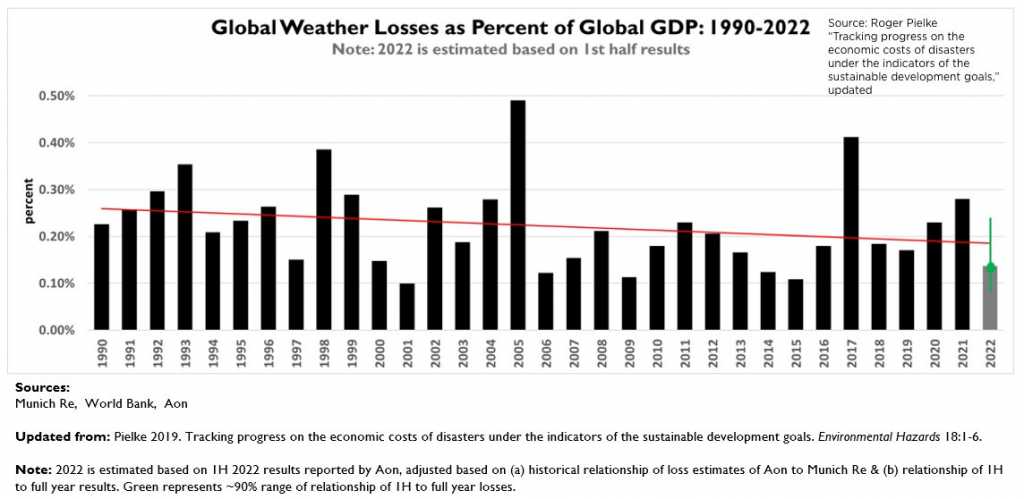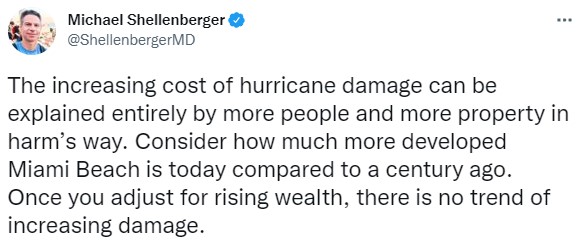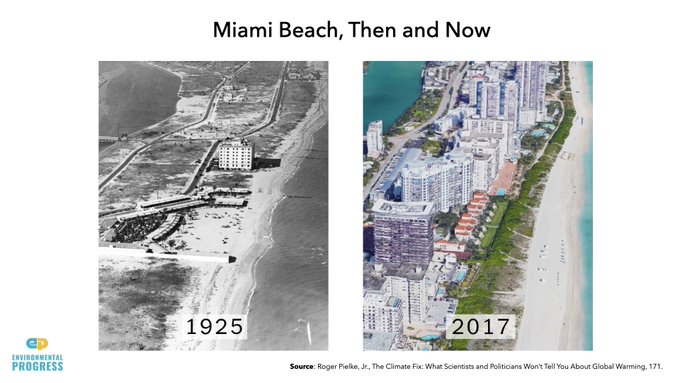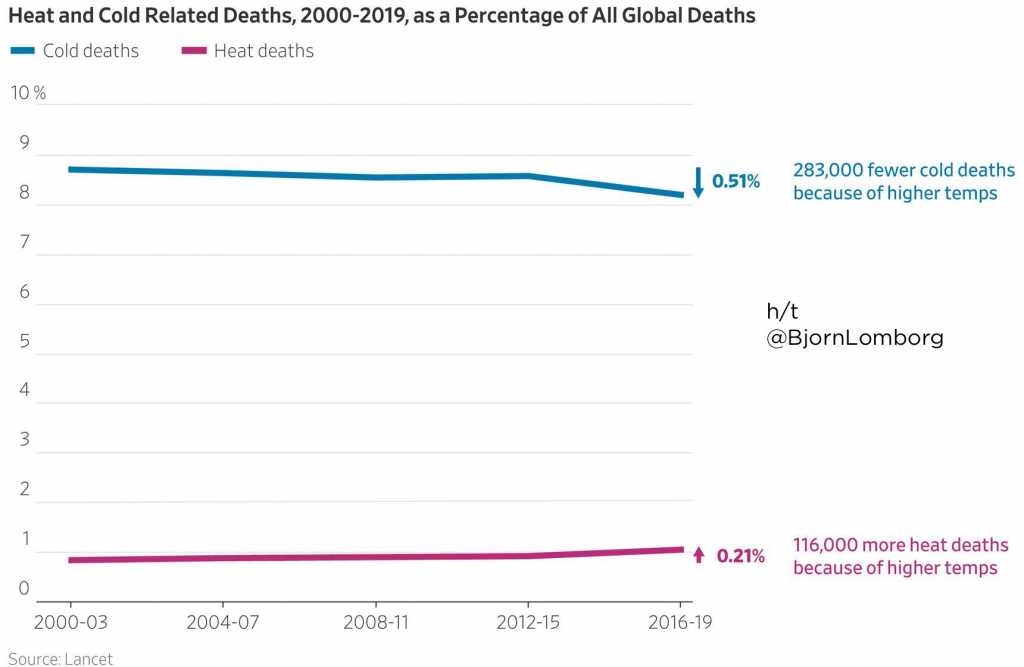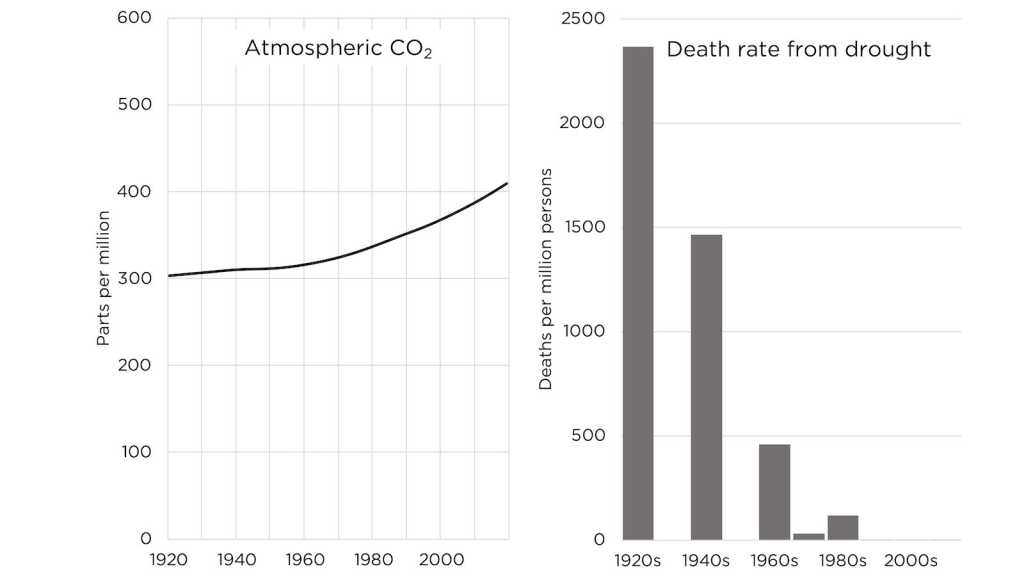A recent Climate Realism post, “New Report Teaches the Media the Difference Between Weather and Climate” points out how the media erroneously conflates weather and climate. That post responded to a story on National Public Radio, titled “How climate change is making storms such as Hurricane Ian stronger,” falsely linking Hurricane Ian, a typical weather event during the annual Atlantic hurricane season, to climate change.
Other mainstream media outlets, for instance, the New York Times (NYT), published similarly false claims about the strength of Hurricane Ian being enhanced by man-made climate change. In a blatantly political smear, the NYT went so far as to claim decisions made by Florida’s political leaders actually made Hurricane Ian worse.
Alex Epstein, author of the book Fossil Future: Why Global Human Flourishing Requires More Oil, Coal, and Natural Gas—Not Less, published an extensive refutation of the purported links between man-made climate change and weather events in a series of tweets on Twitter. For brevity’s sake, Climate Realism, only reposts a handful of Epstein’s tweets below. We recommend readers view Epstein’s entire list at “25 myths about extreme weather, refuted.” Climate Realism has addressed many these same points in the past two years, and links to some of those posts can be found below each myth.
Myth 1: The world is experiencing unprecedented danger from extreme weather thanks to fossil fuels.
Truth: The world is experiencing unprecedented *safety* from extreme weather thanks to FFs—because FFs’ *climate mastery benefits* overwhelm any negative climate side-effects.
Climate Realism has addressed this point about declining weather and disasters, here, here, and here.
Myth 6: Media claims about increasing hurricane frequency are accurate.
Truth: Leading media outlets have deliberately misrepresented the flat long-term hurricane trend. E.g., the @nytimes cherry-picking a starting point—the low point of 1980—to make a flat trend seem upward.
Leading media outlets have also deliberately ignored statements by NOAA and the IPCC about how any increases in hurricane frequency in records are likely due to increasing reporting, not actual frequency.
Here are the latest data on global hurricane frequency and intensity from a 2022 paper (Klotzbach et al.). Does this remotely resemble what trusted media sources tell you?
Here’s recent US data for landfalling hurricanes, both overall and major. Again, consuming the @nytimes and other trusted sources would you have any idea that the data looked like this?
“Climate Realism has written previously, here and here, for example, about the lack of an increase in hurricanes, citing real-world data.
Myth 12: Attributions of X% of an extreme weather event to humans are credible.
Truth: Not only are many attributors clearly biased, but no precise estimate of this kind is possible given today’s climate modeling limits, where mainstream models hugely diverge from one another.
Climate Realism has written articles here and here showing that climate models don’t align with real-world data measurements and run warmer than reality.
Myth 14: Thanks to fossil fuels more people are dying from extreme weather.
Truth: Thanks to FFs more people are *not dying* from extreme weather—and everything else. Fossil-fueled prosperity has driven climate disaster deaths down 98% and life expectancy up by decades.
3 keys to understanding climate damage stats:
1. Damage should be measured % of GDP not compared $-for-$ to a poorer past with less wealth at risk. (E.g., Miami Beach)
2. More people today choose to live in damage-prone areas.
3. Government bailout policies increase damage.
Climate Realism has reported here that “climate related death risk” has dramatically declined over the past 100 years, and now approaches zero.
Myth 16: Extreme temperatures are a bigger danger than ever thanks to fossil fuels.
Truth: Extreme temperatures are a smaller danger than ever thanks to fossil fueled heating and AC—plus the net-benefits of warming in a world where far more people die of cold than heat.
Climate Realism has covered this topic extensively, reporting here, here, and here, for instance, that cold kills more people than heat.
Myth 18: Drought is a bigger danger than ever thanks to fossil fuels.
Truth: Drought is a smaller danger than ever thanks to fossil-fueled irrigation, crop transport, and agriculture. With more such mastery our crop productivity can continue to improve.
Climate Realism has reported on this topic dozens of times, such as, here and here, in posts providing data showing that drought has not worsened due to climate change.
Clearly, Epstein in his “25 myths about extreme weather, refuted” echoed what Climate Realism has repeatedly demonstrated; the mainstream media ignores easily found scientific facts about climate change and weather in favor of promoting a viewpoint in the vein of “climate change makes daily weather a clear and present danger” when in fact, data and scientific publications show just the opposite.
Journalism should not have an agenda, but in seems in the discussion of climate change, many outlets do — willfully ignoring sound science and readily available data on a daily basis. The other possibility is that the media doesn’t have the competence to accurately report on science. Either way, it is an ugly state of affairs for the American public who trust the media to be accurate, when they are clearly not.

















